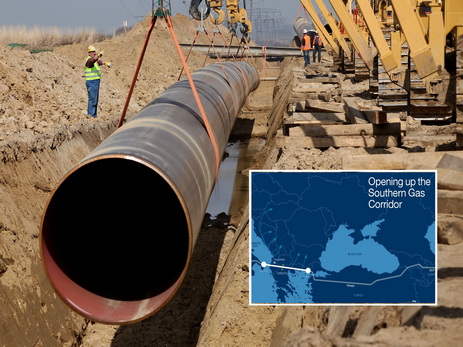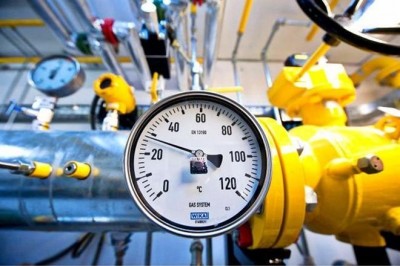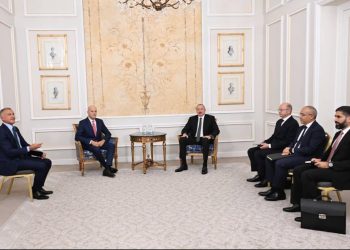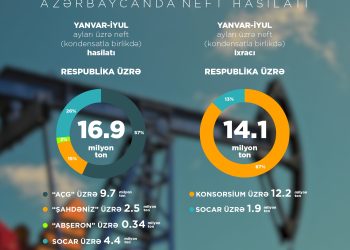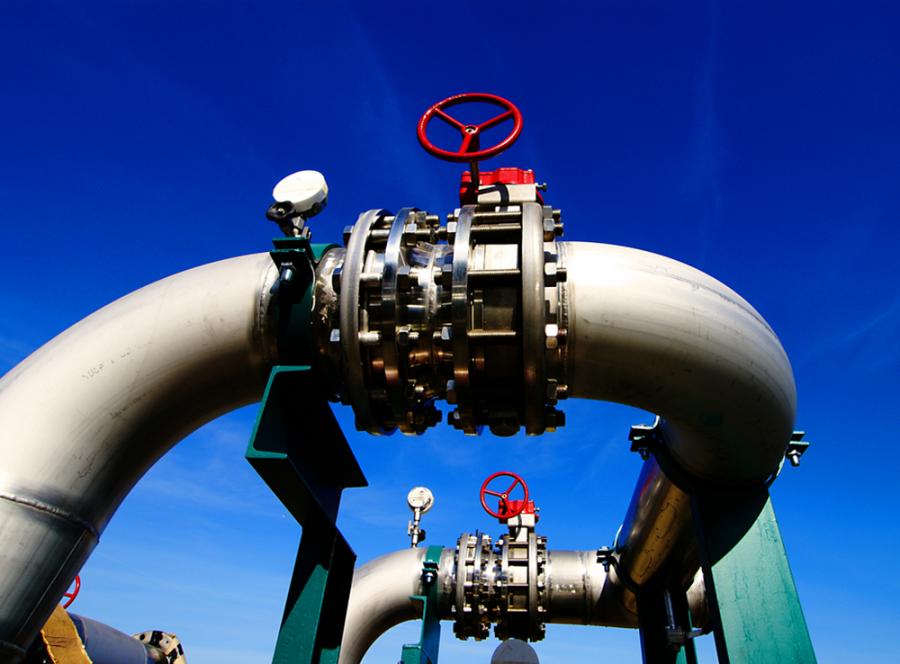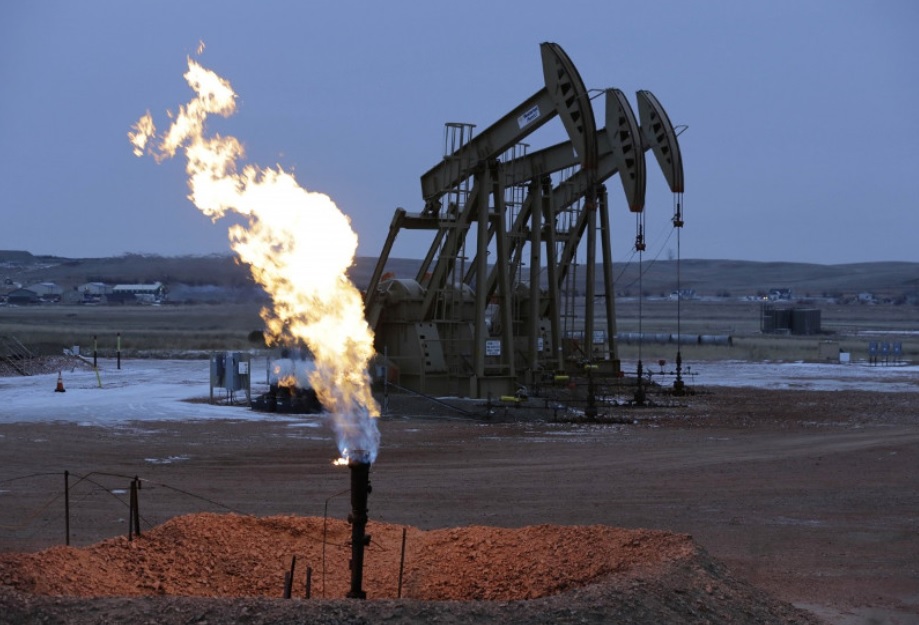Turkey is holding negotiations with the Iraqi government in Baghdad as well as with the Kurdistan Regional Government (KRG) in Arbil on importing Iraqi oil, which will open up options for delivery to world markets. However, up until recently, little attention was paid to Iraq’s huge gas reserves and the possibility of transporting them to European markets via Turkey.
The option of Iraqi gas by Europe became an open discussion among energy experts when Azerbaijani Foreign Minister Elmar Mammadyarov made an unscheduled visit to Baghdad on Feb. 10. Local reports indicate that Mammadyarov invited Iraq to join the Trans-Anatolian Natural Gas Pipeline (TANAP) project, which will deliver Shah Deniz II gas from Azerbaijan to European markets via the Trans-Adriatic Pipeline (TAP), another project that is under way. The Shah Deniz consortium’s decision to deliver Azerbaijani gas to Europe via the TAP pipeline, the development of supplies from Iraq, the Kurdish region and Turkmenistan has been debated since June of 2013.
With regards to Iraqi gas, rumor has it that the Azerbaijani foreign minister discussed this issue with his Iraqi counterpart last September at the United Nations General Assembly; there has been no public contact since then. But interestingly, Turkish Energy and Natural Resources Minister Taner Yildiz has emphasized that Turkey has started talks with Iraq to import gas for domestic use as well as to transport gas to Europe, with the help of the state-owned Turkish Pipeline Corporation (BOTAŞ). He did not mention the TANAP or TAP projects, raising concerns in Baku that Turkey holds different views on Iraqi gas exports. Baku’s view is that the promotion of TANAP and TAP is a common goal and, accordingly, has a strategy:
First of all, increasing TANAP’s profitability will mean delivering more gas to Europe, as well as attracting greater foreign involvement in the project. Given that Azerbaijani gas alone cannot significantly reduce Europe’s dependence on Russian gas, Iraqi gas will solve the “capacity gap” of this route as well as the problem of Europe’s overdependence on Russian gas.
Second, BOTAŞ lacks the capacity to realize the delivery of Iraqi gas to European markets without TANAP, as argued by Azerbaijani energy expert Gulmira Rzayeva in her recently published study on Turkey’s domestic energy market. “BOTAŞ’s transport system’s throughput capacity is not sufficiently developed to accept and ship all the contracted gas volume from the eastern suppliers due to the limited installed capacity of the existing compressor stations.”
One argument is that Turkey’s immediate concern is bringing Iraqi gas to its domestic market by 2015 at a cheaper price compared to Ankara’s other contractors, while TANAP — also cheaper — will only be ready by approximately 2018. However, the counterargument is that Azerbaijan does not oppose Turkey’s domestic imports, but the best way of achieving that is through a parallel process. That means also encouraging Iraq to use TANAP and TAP to reach European gas markets. The other key issue is the tendency to underestimate the capacity of Iraq’s existing gas infrastructure, which is not necessarily ready to export gas by 2016 as suggested.
Moreover, Azerbaijan’s main contribution in this case is launching a dialogue with the central Baghdad government as there were concerns that Turkey was only focusing on the Kurdish government in Arbil. In this sense, Mammadyarov’s visit appeased Baghdad. During my recent trip to Iraq, one local analyst applauded the Azerbaijan foreign minister’s visit to Baghdad, emphasizing that “if you want Iraqi gas, you should ask Baghdad, but if you want to be sure that the gas will be delivered, you should contact Arbil.” The political divide in Iraq between the Arbil and Baghdad governments poses a major obstacle to developing natural gas recourses, and Turkey’s strength lies in its good contacts in both Baghdad and Arbil, which is helpful for its domestic needs as well as making Turkey an “energy bonanza” for energy-hungry Europe.
There is great concern in Russia about these developments. Obtaining Iraqi gas for TANAP and TAP poses a threat to Russia as it represents another factor that will reduce Moscow’s monopoly in the European market. Additionally, if Turkey receives cheaper gas from Iraq, Ankara will be less dependent on Russia. Russia is also worried that if more companies fight to gain shares of Iraq’s energy resources, the plans of Russian energy giant Gazprom could be at risk. The subsidiary companies of Gazprom have joined several projects since 2012 to explore Iraqi hydrocarbon resources, but the discord between Baghdad and Arbil had presented problems for Russia. Therefore, Moscow’s anxiety is understandable.
It is no secret that Azerbaijan needs Turkey’s support in encouraging Iraq to deliver its gas through TANAP and TAP so it is not seen as the only proponent of this plan. Thus, in a recent interview, Elshad Nasirov, the vice-president of the State Oil Company of Azerbaijan Republic (SOCAR), rejected the suggestion that Azerbaijan had “offered” Iraq TANAP. “As far as I understand, there were some misunderstandings among the translators in Baghdad during that press conference,” he said, indicating that the project is open to all interested parties.
For now, Iraq’s position as an option for TANAP and TAP is promising, but it remains too early to predict the route by which Iraqi gas will be delivered to European consumers. The dynamics of the Azerbaijani and Turkish common energy strategy remain to be played out.



